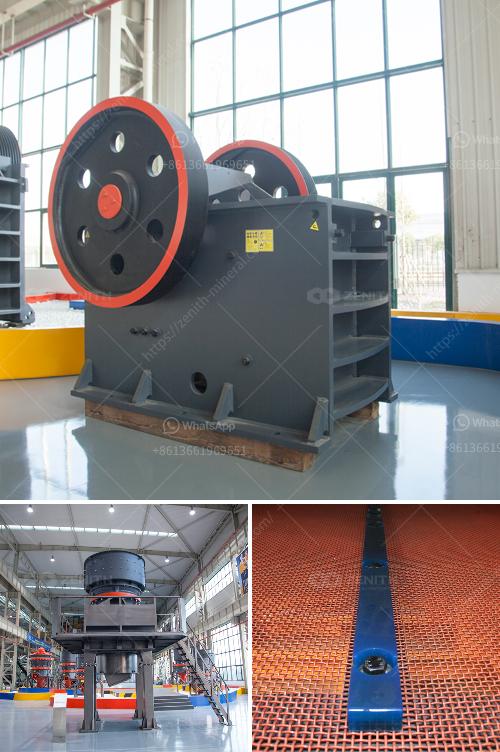Crushing plays a crucial role in the beneficiation process, which is the treatment of raw material (such as iron ore) to improve physical or chemical properties, especially in preparation for smelting. Here’s a detailed explanation of its role:
Crushing is primarily used to reduce the size of large rocks and ores into smaller, more manageable pieces. This is essential because the subsequent beneficiation processes, such as grinding, separation, and concentration, require the material to be of a specific size to be effective.
One of the main goals of crushing is to liberate valuable minerals from the waste rock or gangue. By breaking down the ore into smaller pieces, the valuable minerals are exposed and can be more easily separated during the beneficiation process. This increases the efficiency of the separation process and improves the overall yield of the desired mineral.
Crushing increases the surface area of the ore, which can enhance the efficiency of chemical reactions during subsequent processing stages. For example, in leaching processes, a larger surface area allows for better contact between the ore and the leaching agents, leading to more efficient extraction of the desired minerals.
Crushing is often the first stage in the comminution process, which also includes grinding. By reducing the size of the ore through crushing, the material is prepared for the grinding process, which further reduces the size of the particles to the desired level. This step is crucial for achieving the fine particle size required for effective separation and concentration of the minerals.
Crushing the ore into smaller pieces makes it easier to handle and transport. Large, bulky rocks are difficult to move and process, but once they are crushed into smaller pieces, they can be more easily transported to the next stage of the beneficiation process.
Crushing can also contribute to energy efficiency in the beneficiation process. By reducing the size of the ore before it enters the grinding stage, less energy is required to achieve the desired particle size. This can result in significant energy savings and lower operational costs.
Effective crushing can improve the performance of downstream processes such as flotation, magnetic separation, and gravity concentration. By ensuring that the ore is of a consistent and optimal size, these processes can operate more efficiently and produce higher-quality concentrates.
In summary, crushing is a vital step in the beneficiation process that serves multiple purposes, including size reduction, liberation of valuable minerals, increased surface area, preparation for grinding, facilitation of handling and transport, energy efficiency, and improved performance of downstream processes. Each of these roles contributes to the overall effectiveness and efficiency of the beneficiation process, ultimately leading to the successful extraction and concentration of valuable minerals from the ore.

